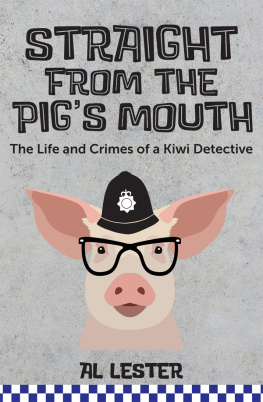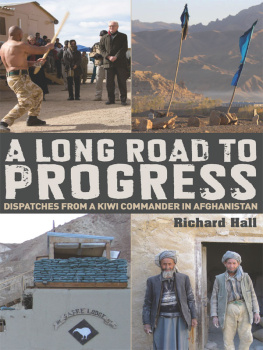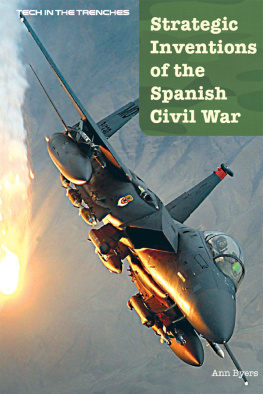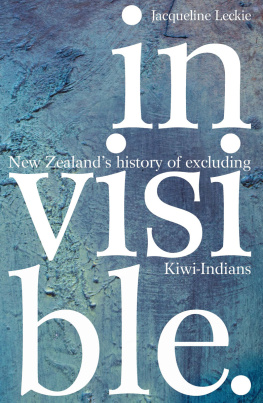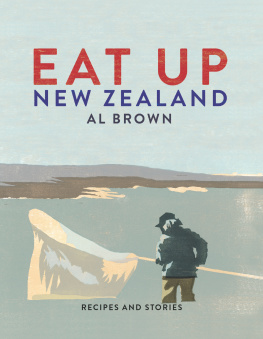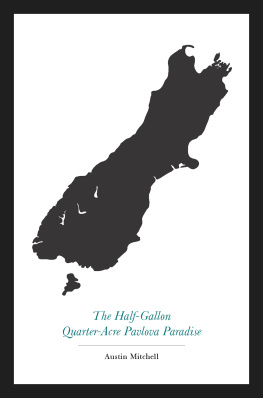My first and greatest debt of gratitude is to Michael OShaughnessy, whose persistent and patient research in several countries first inspired my own interest in New Zealands response to the Spanish Civil War. Michael has since shared with great generosity his research material, international contacts and unequalled knowledge of this subject, without which this book would not have been possible.
The book developed from a 2006 seminar organised by the Trade Union History Project (now the Labour History Project). I am grateful to my fellow committee members of the LHP for their dedicated, active and ongoing support of both the seminar and the ensuing publication . The seminar was addressed by a stellar array of speakers who later revised their spoken presentations for publication. Their cooperation and forbearance during the drawn-out process of publication is much appreciated.
Since the seminar, a small group of researchers has pursued every possible lead in order to tell, as fully and accurately as possible, the story of the New Zealanders who took part in the civil war. Chief among that group were Peter Clayworth and David Verran, whose skills, energy and good humour fill me with admiration.
The families of New Zealand veterans of the civil war have provided some of the most colourful and historically valuable material in this book, and meeting them has been a deeply rewarding aspect of the project. Sincere thanks to: Pedro de Treend; Charlie Rileys nephew Peter Riley and family; William Madigans nephew Mike Madigan and his niece Margaret Bradley; Jack Kents sister Patricia, his niece Bronwyn Jenkins and her relative Adam Jenkins; Bill Trussell, his wife Riemke Ensing and their son James Ensing-Trussell; Philip Crosss children Philip Cross jnr, Mary Cross and Josephine Cross; Greville Texidor and Werner Droeschers daughter Rosamunda Droescher and her relative Oliver Slay; Bill Belchers son Tony Belcher; Jim Hoys widow Maureen and her daughters Dolores Hoy and Penny Hoy-Mack; Don Miles and his daughter Julie Miles; and Ernesto Barattos daughter Tina Chai.
For services and support too numerous and varied to specify, thanks to: Emilio Prez de greda, Imelda Bargas, Salvador Bofarul, Toby Boraman, Gib Brown, Diana Burns, Maureen Birchfield, Jim Carmody, Guillermo Casa, John Christie, Jared Davidson, Val Davison, Javier Delgado, Irene Gale, Len Gale, Hugh Garlick, Rupert Glover, Ray Grover, Scott Hamilton, Larry Hannant, Dave Homewood, Amirah Inglis, Angela Jackson, Dave Kent, Rob Larsen, Alison Laurie, Robin Lawrence, Alan Lloyd, Ramsey Margolis, Jocelyn Maughan, Glen Maw, Therese OConnell, Noeline Penny, Michael Petrou, Jock Phillips, Duncan Ross, Daniel Rother, Tanja Rother, Marlene Sidaway, Dylan Taylor, Christina Tuitubou, Cerian Wagstaff, Terry Winn and Redmer Yska.
Of the many research institutions that contributed to this project, four deserve special mention: the Noel Butlin Archives Centre, Australian National University, ACT; the Auckland City Library; the Alexander Turnbull Library, Wellington, and especially its curator of manuscripts, Dave Colquhoun; and the Hocken Library, Dunedin, especially its reference assistant, Ali Clarke.
Richard King, former managing editor of Canterbury University Press, backed this project from its outset until his sudden death in March 2008. His successor, Rachel Scott, has maintained Richards support for the book and realised his intentions with great skill. The books editor, Gwyn Williams, was ruthlessly precise yet unfailingly amiable.
The New Zealand Lottery Grants Boards financial support to the Labour History Project for this book has been very important to our small and non-profit organisation.
Special thanks are due to Marcos Gomez, Spains Ambassador to New Zealand, for his foreword, his generous financial support and many other acts of kindness.
Lastly, but surely not for the last time, thanks to my family Erin, Loren, Anna and Kura for sustaining, tolerating, critiquing and inspiring me.
Seventy years after its conclusion, the Spanish Civil War (193639) remains a matter of both academic and political controversy, although the relevance of its international dimension is established beyond dispute. The coup against the legitimate government of the Republic, staged in 1936 by a significant portion of the army, prompted a popular uprising that brought about an instant worldwide wave of solidarity. At a time when globalisation had not yet been minted as a trendy concept, there was indeed global awareness of the importance of the stakes.
Scores of thousands of foreigners flocked in those troubled times to the Iberian Peninsula to fight an alien war. Many did so under orders, as they were regular soldiers of the Nazi German and Fascist Italian armies backing the rebels, or Soviet advisers and officers siding for the Republic; but many others (and among them some New Zealanders) were volunteers who chose to stand for what they felt was a just cause. The war also drew to Spain medical personnel, intellectuals and adventurers from all walks of life. The evolution of the conflict was followed everywhere with interest and anxiety. The scale of the international reaction and the readiness of the volunteers to put their lives on the line for their ideals explain why such a distant and bloody conflict has preserved a certain aura of romanticism around it.
The civil war, as well as the extremely long and bleak dictatorship that followed, took a terrible toll on Spain. Even so, present-day Spaniards might think that the image of our country is in certain quarters still too attached to the stereotypes formed in connection with that reckless conflict. With an average per capita income slightly higher than New Zealand, Spain has been for decades a vibrant and modern western democracy. More than 44 million people enjoy all the benefits of a stable and relatively prosperous political, economic and social system. In some areas Spain has moved forward faster than its partners in the European Union. Women form nowadays a majority in the composition of the Spanish government. The country devotes 0.5 per cent of its GNP to development aid. Spanish law allows for marriages on an equal legal footing regardless of the sexual orientation of the partners. There are not many similarities, therefore, between the contemporary realities of Spain and the backward, bitterly divided country that was the scene of that tragic conflict 70 years ago.
The civil war is, however, a part of a heritage common to Spain and New Zealand. History does not offer many occasions that intertwine the fate of these two countries. The involvement of New Zealanders in the Spanish Civil War constitutes one of these rare crossroads. And if the battles in which some of them gave their lives are just a distant memory, it would be fair to say that their gallant endeavour was neither useless nor forgotten: eventually Spain found its way back to democracy, and in 1996 the Spanish Cortes acknowledged their generosity by granting Spanish citizenship to all of those who stood for freedom in our country.
This book is a timely reminder of their extraordinary lives and their courageous and ever-inspiring example.


